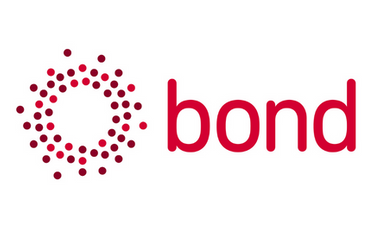Becoming locally-led is an integral part of being an anti-racist organisation, aid charities were told at a conference this week.
Lena Bheeroo, engagement and equity manager at Bond, said it was important to “recognise the interconnectivity” between anti-racism, decolonisation, and shifting power; and being locally-led.
Locally led development means initiatives owned and led by people in their own context.
Bond and its international development charity members have developed a guide, looking at what behaviours and practices need to change if organisations are to become locally-led in each area of the organisation's work, which is soon to be published.
The framework is a way to show those complexities and interconnectivity, with anti-racism “fundamentally” underpinning this.
“It is overwhelming because the problem is huge,” said Bheeroo at the organisation’s conference, noting it is also the “fabric of the sector”.
Nonetheless, she said she had seen “a lot of openness to recognising that these interconnections are necessary and we need to understand them”.
Angela Zamaere Smith, programmes director at All We Can said organisations were “compelled” to be locally-led as “it is the only way” forward.
She added that being locally-led is an anti-racist practice, and the sector cannot talk about one without the other.
INGOs ‘must dismantle the current system of development’
Moses Isooba, the executive director of the Uganda National NGO Forum, said becoming locally-led is “critically important” and the current interest is “very welcome … but long overdue”.
He said the sector must dismantle the current system of development. Part of this means making a departure from “poverty porn and white saviourism”.
Isooba said this had become the “rule of thumb” and needed to stop. Moreover, “mistrust” must be changed as should the “continuous lack of appetite” for supporting overhead costs.
He also argued for a departure from development language, stating “we need to decolonise aid”.
Locally-led development is a “response to shifting the power”, though not to be used interchangeably, he added.
Other areas of focus should be on deconstructing the country office model, which is “akin to colonial outputs” and addressing pay inequality, the executive director said.
Ultimately, Isooba said “those closest to the problem will have the solution” and INGOS must make these changes.
He said there were three options. First, an INGO can “transform”, taking on these changes, or “die well”. He said INGOs must work not to “die badly”.
The “current system has failed” and the “structures are pathologically ill”, Isooba told delegates.
‘Listen to critical friends’
Charlotte Timson, chief executive of Traidcraft Exchange, spoke about how the organisation began to put the principles of shifting power in its organisational strategy, two years ago.
She said “every single part of the organisation is affected”, and spoke of the importance of “listening to critical friends”.
Timson said the organisation made a mistake initially in not connecting anti-racism and shifting power, and have since “realised we need to look much more specifically at the legacy of colonialism”.
Therefore, it is now aiming to put decolonisation in its organisational purpose and mission.
Traidcraft is also looking internally, to decolonise structures and decision making. “Do we mirror internally what we want to achieve externally?” she reflected.
Timson said the process has been “challenging”, adding it is “not easy to unlearn a way of working” and “does require resilience”. She spoke of being mindful about how changes can affect staff and being people centred.
When an organisation commits to shift power it is not necessarily ready to do that or staff are not ready, so organisational preparedness is key, she continued.
The organisation has had to restructure, and has incorporated lived experience into its staff makeup. It has focused on becoming less UK centric and several trustees have decided they need to step down to create space.
Another key area the organisation has been focusing on is funding. Timson said it recognises the need to do more to support local wealth creation and to move away from a restrictive funding model.
The organisation now will not work with some donors, and will prioritise “quality of income” – it expects to reduce income, but thinks flexible funding will work better.
She said we “recognise we will probably end up with less money” but “we believe we will have a bigger impact” as the resource can go directly to partners.
Related Articles











